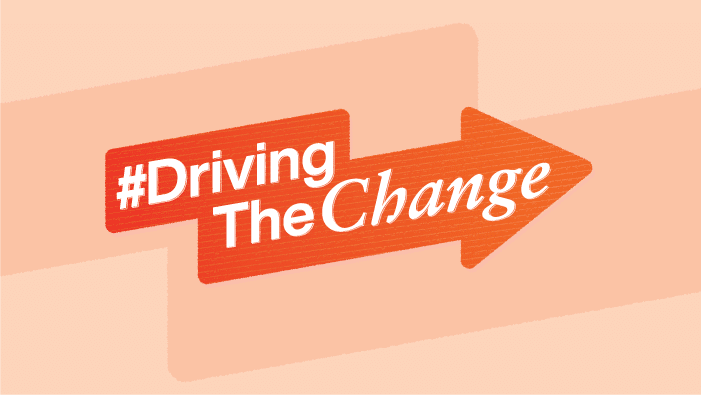Listen to this blog
Who is a data scientist?
A data scientist is a professional who analyzes and interprets complex data sets to uncover insights, patterns, and trends that can inform business decisions and strategies. They use a combination of statistical analysis, machine learning techniques, and programming skills to extract meaningful information from large and diverse data sets. Data scientists’ role is also to help companies make decisions based on the analysis of data.
Data scientist roles and responsibilities
The roles and responsibilities of a data scientist can vary depending on the organization and specific job requirements. However, here are some of the common responsibilities that data scientists are in charge of.
Data analysis
Data scientists are responsible for collecting, cleaning, and organizing data from various sources. They perform exploratory data analysis to understand the data, identify patterns, and determine the appropriate analytical approaches. Data scientists perform Exploratory Data Analysis to gain a deep understanding of the data. They use descriptive statistics, visualizations, and data profiling techniques to identify patterns, trends, and relationships within the data. EDA helps them uncover insights and formulate hypotheses for further analysis.
Machine learning model development
Data scientists apply various machine learning algorithms and techniques to develop predictive or descriptive models. They select appropriate algorithms based on the problem type (classification, regression, clustering, etc.) and the available data. They train the models using historical data, optimize the model parameters, and evaluate their performance using suitable metrics.
Using statistical methods
Statistical analysis techniques play a crucial role in data science work, enabling data scientists to examine datasets, uncover hidden patterns, and gain insights. These techniques are an integral part of the data scientist’s toolkit, facilitating exploration and interpretation of data to identify trends and patterns.
Data storytelling
Employers often require data scientists to possess excellent communication skills and the ability to convey data insights to business executives, managers, and employees using data storytelling techniques. In addition, data scientists are expected to demonstrate leadership skills and business acumen to effectively guide decision-making processes that rely on data analysis.
Key skills required for data scientists
A data scientist is a professional who leverages their knowledge of various fields, including computer science, mathematics, and business, to interpret complex data and drive valuable insights. Here are some of the key skills a data scientist should possess
Programming Skills
Data scientists need to be proficient in at least one programming language, typically Python or R, which are widely used for data analysis. Possessing programming skills in a data science job allows them to manipulate data, conduct analysis, and implement machine learning algorithms.
Machine Learning
Knowledge of machine learning is vital for many data science roles. This includes understanding different types of learning (supervised, unsupervised, reinforcement, etc.), the theory behind various algorithms (linear regression, decision trees, neural networks, etc.), and how to use these tools to solve real-world problems.
Data Wrangling
This involves cleaning and transforming raw data into a more suitable form for analysis. Data often comes from various sources in different formats, and it’s the data scientist’s job to ensure this data is cleaned, validated, and correctly formatted.
Data Visualization
The ability to present complex results in a visually intuitive form is crucial. Tools like Matplotlib, Seaborn, ggplot, or Tableau are often used for this purpose. Good data visualization helps to communicate findings effectively to both technical and non-technical audiences.
Big Data Platforms
Familiarity with big data platforms like Hadoop, Spark, or Hive is beneficial, as data scientists often work with large datasets that cannot be processed using conventional methods.
Read more: Tools covered in MSc Data Science
Top companies hiring data scientists
Here is a list of some of the top companies hiring data scientists in India
- Fractal Analytics
- Deloitte
- Tiger Analytics
- Accenture Analytics
- IBM
- MuSigma
- Wipro
- Splunk
- Numerator
How to start a data science career
You need the right knowledge and skillset to start a career in data science. Here’s how you too can become a data scientist.
Earn a relevant degree or certification
To become a successful data scientist, you require analytical and mathematical skills to work with complex data sets. Additionally, you should have programming knowledge. For all this, you will ideally need a data science degree or a certification course. Nowadays, there are plenty of online courses available on data science, which you can pursue from the comfort of your homes.
If you want to gain in-depth technical knowledge, then an online MSc in data science can be the perfect pick for you. This program will help you master in-demand tools like Hadoop, TensorFlow, Python, R, etc, and help you gain in-demand skills by learning subjects like linear regression models, deep learning & text mining, Bayesian statistical modeling, programming with R & Python, and stochastic processes.
If you want to get a blend of data science and business knowledge, then pursuing an online MBA in data science can be the right choice. This program will help you acquire the latest skills and find lucrative jobs in top organizations.
You can also choose to pursue an online professional certification in data science, if you are looking to upskill in the domain and explore better career opportunities.
Gain key skills
Apart from mastering various programming languages, it’s essential for a Data Scientist to be proficient in several tools used for data visualization, machine learning, and big data. Knowing how to manage, cleanse, arrange, and interpret sizable datasets is a vital skill when dealing with substantial amounts of data.
Internships
Internships are a great way to kickstart your career in data science. If you are just entering the domain, then internships can give you the right push to explore the right career opportunities. As an intern, you can work on various roles that will help you understand your strengths and weaknesses.
Get an entry-level job
You can kickstart your career with entry-level roles like data scientists, data engineer, or data analyst to gain the necessary skills and knowledge required to explore better roles through your career path.
Frequently asked questions about data science jobs
Can anyone do a data science course?
Data science is an emerging domain in today’s digital world, and with the help of a degree or certification, anybody can do a data science course. The eligibility for a master’s degree in data science is 10 + 2 + 3-year bachelor’s degree from a recognized university/institution. However, some universities may require students with a minimum of two years of learning Mathematics or Statistics.
Does data science require coding?
Coding is very necessary for a data science job. Coding is essential to data science as it possesses a learning bend. Coding skills allow data scientists to manipulate and clean data, create models, and automate processes, all of which are critical to the data science process.
Is it good to pursue a 2-year data science program?
Pursuing a 2-year program like an MSc in data science allows you to gain in-depth knowledge about data science concepts and tools, which will help you gain key skills.
What are the key concepts taught in a data science program?
You will learn how to work effectively in groups, generate strategic and tactical recommendations, and use a perfect blend of machine learning, big data analytics, and statistics. You will learn key data science concepts like linear regression models, deep learning & text mining, Bayesian statistical modeling, programming with R & Python, and stochastic processes, and tools like Hadoop, TensorFlow, Python, R, SPSS, SAS, Matplotlib, NumPy, OpenCV, Pandas, Apache Spark, Apache Hive, SQL, Google Colab, KNIME, and WEKA.
What are the programming languages a data scientist should know?
Data scientists must have knowledge in programming languages like Python, R, SQL, C++, MATLAB, Scala, Go, SAS, and Java.
What are the jobs you get after MBA in data science?
Pursuing an MBA in data science helps you explore high paying job roles like data science managers, product analysts, data architects, market research analysts and more.
What are the jobs you get after MSc in data science?
After pursuing an MSc in data science, you can explore job roles like data scientist, machine learning engineer, data analyst, statistical analyst, research scientist and more.
Become future-ready with our online M.Sc. in Data Science program
















